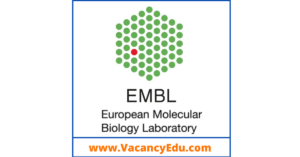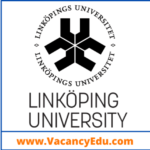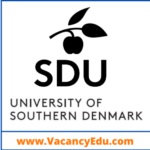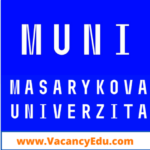European Molecular Biology Laboratory (EMBL), Germany invites online Application for various Postdoctoral Fellowship in their different Departments. We are providing a list of Postdoc Fellowship positions available at European Molecular Biology Laboratory (EMBL), Germany.
Eligible candidate may Apply as soon as possible.
(01) Postdoctoral Fellowship Position
Postdoc Fellowship Position summary/title: Postdoctoral Fellow – Bridging Excellence Fellowship
We invite all eligible researchers to submit a proposal describing a collaboration between at least one lab at EMBL and one faculty member from Stanford University (specifically in the School of Medicine or School of Humanities & Sciences). This collaboration should build on the strengths of the partner laboratories, as well as your own expertise. Fellowships will be awarded to researchers, who take up a position as a postdoctoral fellow at EMBL or at Stanford University for 3 years. During this time, fellows will spend up to one year visiting their collaborators at the partner institution to work on the joint research project (multiple visits totalling 1 year are permitted). In addition to benefitting from the mentorship from two expert supervisors, fellows will also be able to take advantage of postdoctoral training opportunities from both institutions.
Deadline : 27th of Jan 2023
(02) Postdoctoral Fellowship Position
Postdoc summary/title: Postdoctoral Fellow – Computational Modelling of Soil Ecosystems
The project aims to develop theoretical and computational models of these ecosystems – in particular aiming to address the design and effects of synthetic biology-based interventions to mitigate the impacts of desertification caused by global warming. The research will require a multi-scale approach to ecosystem organization with particular emphasis on understanding the impact of modified strains in both soil microbiome dynamics and vegetation cover patterns in space and time. The project will benefit from both ongoing designs of microcosm and mesocosm facilities at EMBL and massive available data sets from drylands. The latter include diverse kinds of information, from co-occurrence microbial networks to remote sensing maps. Modelling efforts should help to address the analysis of these experimental designs, the definition of microbiome-related warning signals and the scalability of the terraformation strategies.
Deadline : 23 November 2022
Looking for more Postdoctoral Positions Click Here
Looking for Faculty Positions Click Here
(03) Postdoctoral Fellowship Position
Postdoc Fellowship Position summary/title: Postdoctoral Fellow
Deadline : 20 November 2022
(04) Postdoctoral Fellowship Position
Postdoc Fellowship Position summary/title: Postdoctoral Fellow – Uhlmann Group
Deadline : 13 November 2022
(05) Postdoctoral Fellowship Position
Postdoc Fellowship Position summary/title: Postdoctoral Fellowship – Protein Science Machine Learning with Astra Zeneca
The aim of this project, which is a collaboration between EMBL-EBI and AstraZeneca, will be to investigate the applications of machine learning and AI in predicting the results of protein expression experiments and to develop computational tools that can accurately address the following two key questions:
- For a given sequence, will this lead to successful protein expression?
- Given a protein, what sequence (or sequences) are most likely to lead to successful expression?
We aim to use both “traditional” machine learning approaches together with the more recent deep learning methods to tackle these questions. Such methods typically require significant amounts of data for training and validation. Within this project we will focus on the use of data from AZ internal programmes augmented with open-access public data where available. There will thus be a need to develop methods for the integration of data from different sources. For model building we will explore different sequence and descriptor representation options, different deep learning architectures, model robustness etc. Assuming that one or more validated models can be generated, these will be evaluated in prospective experiments performed in collaboration with AZ’s in-house protein expression and production teams.
Deadline : 6 November 2022
Click here for “Postdoc Application Cover Letter Template”
Click here to know “How to write a Postdoc Job Application or Email”
(06) Postdoctoral Fellowship Position
Postdoc Fellowship Position summary/title: Postdoctoral Fellow – Computational Analysis of Human Microbiome Data
We are seeking highly motivated computational biologists to join the research group of Peer Bork within the Structural and Computational Biology Unit as a postdoctoral fellow. This bioinformatics group works on a wide range of topics with a current focus on microbiome analysis in ecosystems like the human gut, soil and ocean.
Your role would be to analyse large-scale microbiomics data (metagenomes, metatranscriptomes, metabolomes etc.) for biological discoveries by data integration. The primary focus will be the human gut microbiome, with data coming from various internal and external projects, often involving hundreds of individuals. For example, multiple cohorts of patients with different stages of liver disease will be analysed, partially with multiple time points, deep omics characterisation, medical drug treatment and clinical follow-up data. Available projects will be, for example, (i) dissection of the impact of therapeutics, environmental factors, and the gut microbiome on human health, (ii) integration of multi-omics data for functional interpretations, and (iii) analysis of the diversity of the microbiome across the globe both in terms of structure (species and strains) and function (e.g. detection of novel functional modules). The work aims at biological discoveries and will comprise both methodological and applied aspects.
Deadline : 3 November 2022
(07) Postdoctoral Fellowship Position
Postdoc Fellowship Position summary/title: Postdoctoral Fellow – Uhlmann Research Group
The successful candidate will develop computational tools to quantitatively characterize tissue microenvironments, and identify changes in tissue architecture across the lifespan of gonads. The project will involve the design of a pipeline to quantify single-cell gene expression data in 3D image datasets (stitching, registration, and quantification), followed by data analysis to reconstruct and quantify follicles during development. Tissue architecture will then be characterized in 3D by combining representation learning strategies (to extract key features of tissue microenvironments in an unbiased manner) and classical algorithms for multiscale morphology description. The joint consideration of learned features and visual descriptors will help construct an interpretable and robust characterization of tissue microenvironments, which will then allow identifying and quantifying architectural changes.
Deadline : 31 October 2022
Click here to know “How to Write an Effective Cover Letter”
About The European Molecular Biology Laboratory (EMBL), Germany – Official Website
The European Molecular Biology Laboratory (EMBL) is a molecular biology research institution supported by 27 member states, two prospect states, and one associate member state. EMBL was created in 1974 and is an intergovernmental organization funded by public research money from its member states. Research at EMBL is conducted by approximately 85 independent groups covering the spectrum of molecular biology. The list of independent groups at EMBL can be found at www.embl.org. The Laboratory operates from six sites: the main laboratory in Heidelberg, and sites in Hinxton (the European Bioinformatics Institute (EBI), in England), Grenoble (France), Hamburg (Germany), Rome (Italy) and Barcelona (Spain). EMBL groups and laboratories perform basic research in molecular biology and molecular medicine as well as train scientists, students, and visitors. The organization aids in the development of services, new instruments and methods, and technology in its member states. Israel is the only full member state located outside Europe.
Disclaimer: We try to ensure that the information we post on VacancyEdu.com is accurate. However, despite our best efforts, some of the content may contain errors. You can trust us, but please conduct your own checks too.
Related Posts
- 05 Postdoctoral Fellowship at Linkoping University, Sweden

- 13 Postdoctoral Fellowship at Duke University, North Carolina, USA

- 18 Postdoctoral Fellowship at University of Southern Denmark, Denmark

- 06 Postdoctoral Fellowship at Paul Scherrer Institute (PSI), Switzerland

- 18 Postdoctoral Fellowship at Ohio State University, United States

- 13 Postdoctoral Fellowship at Monash University, Australia

- 14 Postdoctoral Fellowship at Cornell University, New York, United States

- 07 Postdoctoral Fellowship at Masaryk University, Czech Republic

- 23 Postdoctoral Fellowship at University of Texas at Austin, United States












